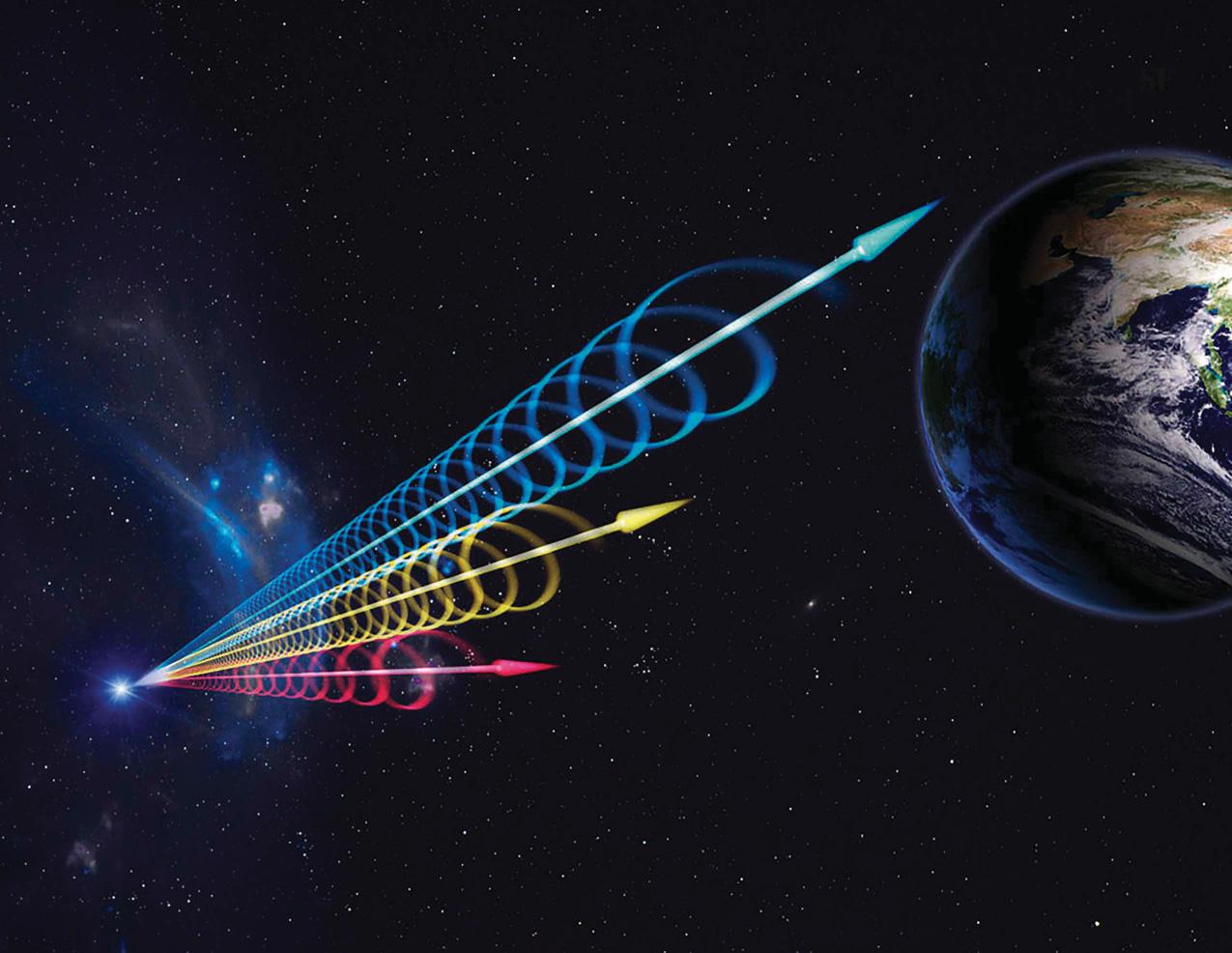Prøve GULL - Gratis
Fast radio bursts: Are these mysterious signals from deep space getting even stranger?
BBC Science Focus
|March 2025
New discoveries are shaking up what little we thought we knew about fast radio bursts

Fast radio bursts (FRBs) are among the greatest cosmic enigmas of our time. First discovered in 2007, these fleeting flashes of radio waves have been puzzling astronomers ever since. Despite detecting thousands of them, we still don't know exactly what causes them, where they come from or why they behave so unpredictably.
Just when scientists thought they were beginning to piece together the puzzle, two new studies, published in January this year, threw a spanner in the works, challenging previous theories and adding new layers of intrigue to the FRB mystery.
"FRBs are one of these mysteries of the Universe that deserves to be solved," says Dr Tarraneh Eftekhari, a radio astronomer at Northwestern University, in the US, and lead author of first of the new papers published in The Astrophysical Journal Letters. A solution may well be long overdue, but the Universe, it seems, isn't giving up its secrets just yet.
WHAT'S SO MYSTERIOUS ABOUT FRBS?
While it wouldn't be quite right to say that FRBs were discovered by accident, it's true that when first spotted, they were buried within data collected for an entirely different purpose: tracking down pulsars.
Pulsars, or 'pulsating radio sources', are a far better understood cosmic phenomenon. They were discovered in 1967 by Prof Jocelyn Bell Burnell and are known to originate from neutron stars – the incredibly dense remnants of massive stars that boast magnetic fields trillions of times stronger than Earth's. These fast-spinning stellar corpses emit regular pulses of radio waves, acting like cosmic lighthouses.
The regularity of the pulses Bell spotted, and the fact they were being emitted at a very specific frequency, hinted that they might be artificially, rather than naturally, generated and led her to nickname that first pulsar “Little Green Man 1”. But while pulsars quickly found their place in the astrophysical playbook, FRBs are a different story.
Denne historien er fra March 2025-utgaven av BBC Science Focus.
Abonner på Magzter GOLD for å få tilgang til tusenvis av kuraterte premiumhistorier og over 9000 magasiner og aviser.
Allerede abonnent? Logg på
FLERE HISTORIER FRA BBC Science Focus

BBC Science Focus
World's biggest cobweb is home to 100,000 spiders
Spiders don't normally create such large colonies, so there's no need to worry about finding one in your basement
1 min
February 2026

BBC Science Focus
A dementia vaccine could be gamechanging – and available already
Getting vaccinated against shingles could protect you from getting dementia, or slow the progression of the disease
1 mins
February 2026

BBC Science Focus
DATA IN SPACE
An unusual spacecraft reached orbit in November 2025, one that might herald the dawn of a new era.
7 mins
February 2026

BBC Science Focus
Climate change is already shrinking your salary
No matter where you live, a new study has found warmer temperatures are picking your pocket
4 mins
February 2026

BBC Science Focus
A MENTAL HEALTH GLOW-UP
Forget fine lines. Could Botox give you an unexpected mental health tweakment?
3 mins
February 2026
BBC Science Focus
Most people with high cholesterol gene don't know they have it
Standard testing struggles to detect the condition
1 mins
February 2026

BBC Science Focus
HOW CAN I BOOST MY IQ?
If you're serious about getting smarter, it's time to ditch the brain-training apps
4 mins
February 2026

BBC Science Focus
Humans are absolutely terrible at reading dogs' emotions
Think you can tell how our furry friends are feeling? Think again
1 mins
February 2026

BBC Science Focus
HOW TO TEACH AI RIGHT FROM WRONG
If we want to get good responses from AI, we may need to see what it does when we ask it to be evil
3 mins
February 2026

BBC Science Focus
What Australia's social media ban could really mean for under-16s
Many people think social media is bad for our kids. Australia is trying to prove it
5 mins
February 2026
Listen
Translate
Change font size

